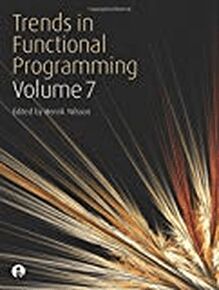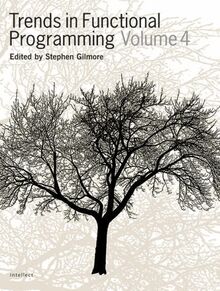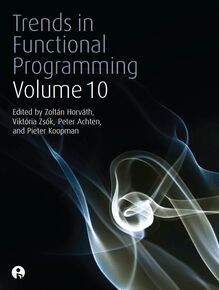-
 Univers
Univers
-
 Ebooks
Ebooks
-
 Livres audio
Livres audio
-
 Presse
Presse
-
 Podcasts
Podcasts
-
 BD
BD
-
 Documents
Documents
-
- Cours
- Révisions
- Ressources pédagogiques
- Sciences de l’éducation
- Manuels scolaires
- Langues
- Travaux de classe
- Annales de BEP
- Etudes supérieures
- Maternelle et primaire
- Fiches de lecture
- Orientation scolaire
- Méthodologie
- Corrigés de devoir
- Annales d’examens et concours
- Annales du bac
- Annales du brevet
- Rapports de stage
La lecture à portée de main
Vous pourrez modifier la taille du texte de cet ouvrage
Découvre YouScribe en t'inscrivant gratuitement
Je m'inscrisDécouvre YouScribe en t'inscrivant gratuitement
Je m'inscrisEn savoir plus
Vous pourrez modifier la taille du texte de cet ouvrage
En savoir plus

Description
Sujets
Informations
| Publié par | Intellect Books |
| Date de parution | 01 juin 2005 |
| Nombre de lectures | 1 |
| EAN13 | 9781841509907 |
| Langue | English |
Informations légales : prix de location à la page 0,2200€. Cette information est donnée uniquement à titre indicatif conformément à la législation en vigueur.
Extrait
Trends in Functional Programming Volume 6
Edited by Marko van Eekelen Radboud University, Nijmegen
First Published in the UK in 2007 by Intellect Books, PO Box 862, Bristol BS99 1DE, UK
First published in the USA in 2007 by Intellect Books, The University of Chicago Press, 1427 E. 60th Street, Chicago, IL 60637, USA
Copyright 2007 Intellect
All rights reserved. No part of this publication may be reproduced, stored in a retrieval system, or transmitted, in any form or by any means, electronic, mechanical, photocopying, recording, or otherwise, without written permission.
A catalogue record for this book is available from the British Library.
Cover Design: Gabriel Solomons
ISBN 978-1-84150-176-5/EISBN 978-184150-990-7
Printed and bound by Gutenberg Press, Malta.
Contents
1 Best student Paper: A New Approach to One-Pass Transformations
Kevin Millikin
1.1 Introduction
1.2 Cata/build Fusion for -Terms
1.3 The Call-by-value CPS Transformation Using Build
1.4 A Catamorphic Normalization Function
1.5 A New One-Pass Call-by-value CPS Transformation
1.6 Suppressing Contraction of Source Redexes
1.7 Comparison to Danvy and Filinski s One-Pass CPS Transformation
1.8 A New One-Pass Call-by-name CPS Transformation
1.9 Related Work and Conclusion
References
2 A Static Checker for Safe Pattern Matching in Haskell
Neil Mitchell and Colin Runciman
2.1 Introduction
2.2 Reduced Haskell
2.3 A Constraint Language
2.4 Determining the Constraints
2.5 A Worked Example
2.6 Some Small Examples and a Case Study
2.7 Related Work
2.8 Conclusions and Further Work
References
3 Software Metrics: Measuring Haskell
Chris Ryder, Simon Thompson
3.1 Introduction
3.2 What Can Be Measured
3.3 Validation Methodology
3.4 Results
3.5 Conclusions and Further Work
References
4 Type-Specialized Serialization with Sharing
Martin Elsman
4.1 Introduction
4.2 The Serialization Library
4.3 Implementation
4.4 Experiments with the MLKit
4.5 Conclusions and Future Work
References
5 Logical Relations for Call-by-value Delimited Continuations
Kenichi Asai
5.1 Introduction
5.2 Preliminaries
5.3 Specializer for Call-by-name -Calculus
5.4 Logical Relations for Call-by-value -Calculus
5.5 Specializer in CPS
5.6 Specializer in Direct Style
5.7 Interpreter and A-normalizer for Shift and Reset
5.8 Specializer for Shift and Reset
5.9 Type System for Shift and Reset
5.10 Logical Relations for Shift and Reset
5.11 Related Work
5.12 Conclusion
References
6 Epigram Reloaded: A Standalone Typechecker for ETT
James Chapman, Thorsten Altenkirch, Conor McBride
6.1 Introduction
6.2 Dependent Types and Typechecking
6.3 Epigram and Its Elaboration
6.4 ETT Syntax in Haskell
6.5 Checking Types
6.6 From Syntax to Semantics
6.7 Checking Equality
6.8 Related Work
6.9 Conclusions and Further Work
References
7 Formalisation of Haskell Refactorings
Huiqing Li, Simon Thompson
7.1 Introduction
7.2 Related Work
7.3 The -Calculus with Letrec ( LETRREC )
7.4 The Fundamentals of LETRREC
7.5 Formalisation of Generalising a Definition
7.6 Formalisation of a Simple Module System M
7.7 Fundamentals of M
7.8 Formalisation of Move a definition from one module to another in M
7.9 Conclusions and Future Work
References
8 Systematic Search for Lambda Expressions
Susumu Katayama
8.1 Introduction
8.2 Implemented System
8.3 Efficiency Evaluation
8.4 Discussions for Further Improvements
8.5 Conclusions
References
9 First-Class Open and Closed Code Fragments
Morten Rhiger
9.1 Introduction
9.2 Open and Closed Code Fragments
9.3 Syntactic Type Soundness
9.4 Examples
9.5 Related Work
9.6 Conclusions
References
10 Comonadic Functional Attribute Evaluation
Tarmo Uustalu and Varmo Vene
10.1 Introduction
10.2 Comonads and Dataflow Computation
10.3 Comonadic Attribute Evaluation
10.4 Related Work
10.5 Conclusions and Future Work
References
11 Generic Generation of the Elements of Data Types
Pieter Koopman, Rinus Plasmeijer
11.1 Introduction
11.2 Introduction to Automatic Testing
11.3 Generic Test Data Generation in Previous Work
11.4 Generic Test Data Generation: Basic Approach
11.5 Pseudo-Random Data Generation
11.6 Restricted Data Types
11.7 Related Work
11.8 Conclusion
References
12 Extensible Record with Scoped Labels
Daan Leijen
12.1 Introduction
12.2 Record operations
12.3 The Types of Records
12.4 Higher-Ranked Impredicative Records
12.5 Type Rules
12.6 Type Inference
12.7 Implementing Records
12.8 Related Work
12.9 Conclusion
References
13 Project Start Paper: The Embounded Project
Kevin Hammond, Roy Dyckhoff, Christian Ferdinand, Reinhold Heck-mann, Martin Hofmann, Steffen Jost, Hans-Wolfgang Loidl, Greg Michael-son, Robert Pointon, Norman Scaife, Jocelyn S rot and Andy Wallace
13.1 Project Overview
13.2 The Hume Language
13.3 Project Work Plan
13.4 The State of the Art in Program Analysis for Real-Time Embedded Systems
13.5 Existing Work by the Consortium
13.6 Conclusions
References
14 Project Evaluation Paper: Mobile Resource Guarantees
Donald Sannella, Martin Hofmann, David Aspinall, Stephen Gilmore, Ian Stark, Lennart Beringer, Hans-Wolfgang Loidl, Kenneth MacKenzie, Alberto Momigliano, Olha Shkaravska
14.1 Introduction
14.2 Project Objectives
14.3 An Infrastructure for Resource Certification
14.4 A PCC Infrastructure for Resources
14.5 Results
References
Preface
This book contains selected papers from the proceedings presented at the Sixth Symposium on Trends in Functional Programming (TFP05). Continuing the TFP series with its previous instances held in Stirling (1999), St. Andrews (2000), Stirling (2001), Edinburgh (2003) and Munich (2004) the symposium was held in Tallinn, Estland in co-location with ICFP 2005 and GPCE 2005.
TFP ( www.tifp.org ) aims to combine a lively environment for presenting the latest research results with a formal post-symposium refereeing process leading to the publication by Intellect of a high-profile volume containing a selection of the best papers presented at the symposium. Compared to the earlier events in the TFP sequence the sixth symposium in 2005 was proud to host more participants than ever. This was partly due to the financial support given to many participants via the APPSEM II Thematic Network.
The 2005 Symposium on Trends in Functional Programming (TFP05) was an international forum for researchers with interests in all aspects of functional programming languages, focusing on providing a broad view of current and future trends in Functional Programming. Via the submission of abstracts admission to the symposium was made possible upon acceptance by the program chair. The Tallinn proceedings contain 30 full papers based on these abstracts.
After the Symposium all authors were given the opportunity to improve their papers incorporating personal feedback given at the symposium. These improved papers were refereed according to academic peer-review standards by the TFP05 programme committee. Finally, all submitted papers (student and non-student) were reviewed according to the same criteria. Out of 27 submitted papers the best 14 papers were selected for this book. These papers all fulfill the criteria for academic publication as laid down by the programme committee.
Evaluation of extra student feedback round
In order to enhance the quality of student submissions, student papers were given the option of an extra programme committee review feedback round based upon their submission to the symposium proceedings. This feedback in advance of the post-symposium refereeing process is intended for authors who are less familiar with a formal publication process. It provides general qualitative feedback on the submission, but it does not give a grade or ranking. This extra student feedback round was a novelty for the TFP-series suggested by the programme chair and approved by the programme committee.
Since the effort of an extra student feedback round performed by the PC was novel, it was decided to evaluate it. Fifteen students used the feedback round. Twelve of them still decided to submit after the extra feedback round. The others decided to work more on their paper and submit to another venue later. The feedback round included comments from at least 3 pc-members. At the final submission a letter was attached by the student author explaining how the feedback was incorporated in the final paper. Then, the student papers were reviewed again by the original reviewers according to the standard criteria.
In the final submission the acceptance rates for the students (0.42) were a bit lower than the overall acceptance rate (0.52). This is a significant improvement compared to earlier TFP-events where the acceptance rates for students were much lower.
It is also important to note that the grades that were given by the reviewers to student papers were on average at the same level as the overall average (2.903 vs 2.898 on a decreasing scale from 1 to 5).
As part of the evaluation we sent round a questionnaire to the students asking 13 different questions evaluating the feedback round. Ten out of 15 returned the questionnaire. The answers were very positive. For some students the advantages were mainly in improving technical details or in improving the motivation of the work. For most students the advantages were in improving the structure or the presentation of the work. Overall, the students gave on average 4.5 on an increasing scale from 1 to 5 to the questions regarding the usefulness and the desirability of the feedback round.
It was decided by the TFP-advisory committee to continue this feedback round in later TFP-events.
New paper categories
Upon proposal of the TFP05 programme chair, the TFP05 programme committee introduced besides the usual research papers three other paper c
-
 Univers
Univers
-
 Ebooks
Ebooks
-
 Livres audio
Livres audio
-
 Presse
Presse
-
 Podcasts
Podcasts
-
 BD
BD
-
 Documents
Documents
-
Jeunesse
-
Littérature
-
Ressources professionnelles
-
Santé et bien-être
-
Savoirs
-
Education
-
Loisirs et hobbies
-
Art, musique et cinéma
-
Actualité et débat de société
-
Jeunesse
-
Littérature
-
Ressources professionnelles
-
Santé et bien-être
-
Savoirs
-
Education
-
Loisirs et hobbies
-
Art, musique et cinéma
-
Actualité et débat de société
-
Actualités
-
Lifestyle
-
Presse jeunesse
-
Presse professionnelle
-
Pratique
-
Presse sportive
-
Presse internationale
-
Culture & Médias
-
Action et Aventures
-
Science-fiction et Fantasy
-
Société
-
Jeunesse
-
Littérature
-
Ressources professionnelles
-
Santé et bien-être
-
Savoirs
-
Education
-
Loisirs et hobbies
-
Art, musique et cinéma
-
Actualité et débat de société
- Cours
- Révisions
- Ressources pédagogiques
- Sciences de l’éducation
- Manuels scolaires
- Langues
- Travaux de classe
- Annales de BEP
- Etudes supérieures
- Maternelle et primaire
- Fiches de lecture
- Orientation scolaire
- Méthodologie
- Corrigés de devoir
- Annales d’examens et concours
- Annales du bac
- Annales du brevet
- Rapports de stage










